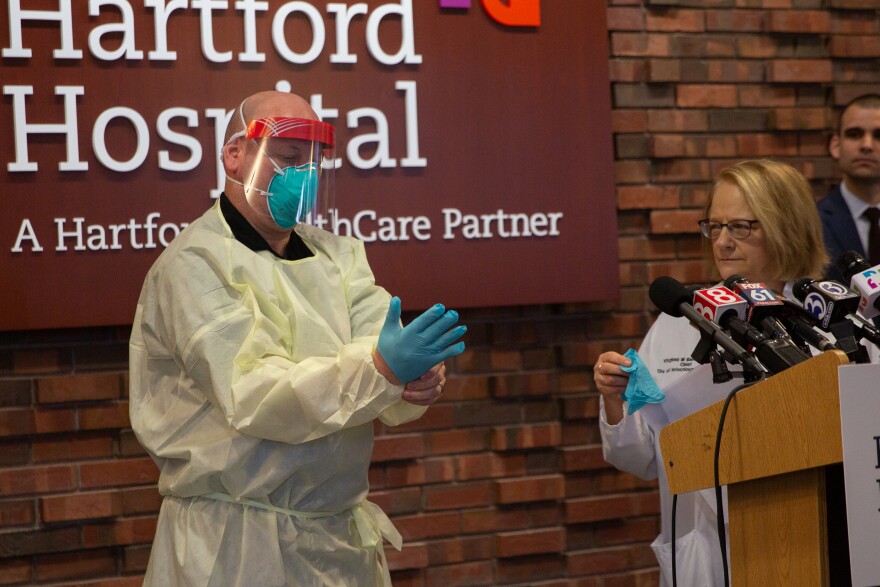The spread and impact of the novel coronavirus that originated in Wuhan, China, is changing rapidly as governments and public health experts report additional cases and deaths.
More than 24,500 people have become ill and over 490 have died, and the majority of cases have occurred in China, according to the World Health Organization.
While countries like the United States are being affected to a lesser degree, with 11 confirmed cases nationally, public health experts in Connecticut said they’re prepared to handle local cases of the infectious disease.
“We know how to do this. We’ve been doing this for all the other types of infections that have come around, such as MERS and SARS and Ebola,” said Dr. Kenneth Robinson, chief of Hartford Hospital’s Department of Emergency Medicine. “We have a very brief travel screen for every patient that comes in. The point of this is to No. 1, keep the patients and their families safe, and No. 2, provide them with the most appropriate care as quickly as possible and keep the employees safe as well.”
Local health officials said they’re working closely with the state and the U.S. Centers for Disease Control and Prevention to monitor any potential cases. They’re specifically screening for people who have traveled to affected areas abroad and are exhibiting coronavirus symptoms.
Dr. Virginia Bieluch of the Hospital of Central Connecticut said those symptoms can be very similar to another infectious disease: the flu.
“It is circulating right now, we’re in the peak season or near the peak, and so it can be difficult to determine,” she said.
Connecticut has had only two suspected cases of the novel coronavirus. Medical providers alert the state Department of Public Health of patients who appear to be more at risk of having the coronavirus based on their symptoms and travel histories.
Those patients are then seen by an infectious disease specialist, who collects respiratory samples that are then sent to the CDC for testing.
Test results for Connecticut’s two suspected cases came back negative in both instances, but the patients were diagnosed with the flu, which has hospitalized more than 1,000 and killed 23 people in Connecticut.
Public experts said as of now, people in the United States are far more likely to become ill with the flu or another infectious disease than with coronavirus, but Liz Szabo, senior correspondent at Kaiser Health News, said that hasn’t stopped people from placing more of their worries on the coronavirus.
“People say, too, the fact that this is a quote-unquote foreign virus -- you know, it’s the Wuhan virus, people are afraid of the Ebola virus, the Zika Virus -- anything that comes from overseas seems a little more exotic, a little more mysterious,” she said. “There could be some xenophobia mixed in with all of that in just fear of the foreign.”
Szabo spoke about the disease outbreak Tuesday on Where We Live along with Julie Wernau, who is originally from Waterford and now lives in Beijing as a reporter for the Wall Street Journal.
Wernau said the outbreak and development of the coronavirus in China have been swift.
“You know, just all of a sudden, a few days ago really, everything just shut down,” she said. “When this coronavirus showed up, I think at first, nobody took it too seriously. It was just a few cases. China has 1.4 billion people in it, so when you look at these numbers, that’s something to kind of keep in perspective.”
Life has been significantly impacted for people living in Chinese cities and areas with widespread disease outbreak, Wernau said. People are being quarantined in their homes, going out only for basic necessities like food and water.
But even in places within China and around the world where few or no cases have been found, Wernau said, people are taking extreme precaution.
“I had to travel recently to Paris, and you know, I’ve been quite reticent to tell people where I’ve been flying in from. People are so afraid,” she said.
Connecticut health experts say people who think they’re ill with any possible infectious disease -- including the flu and coronavirus -- should call ahead to their health care providers.
This story has been updated.





